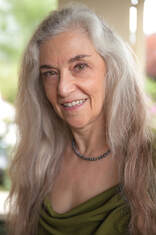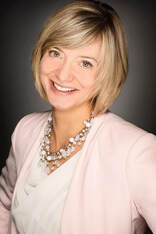|
(PAST EVENT) Free Upcoming Virtual Event Planning Considerations for Elder Orphans and Solo Agers Wednesday, August 11th, 2021 1pm PST on Zoom Join us for a riveting virtual panel discussion with Sima Kahn, MD of Healthcare Advocacy Partners, and Lisa Mayfield of Aging Wisdom. We will discuss who solo agers are, the intricacies and issues of life planning for solo agers, and how to choose a healthcare power of attorney that you can trust with your decisions. Planning ahead is essential for the well-being of solo agers, and there is no better time than now to begin the process of managing your own care, choosing your support community, and setting yourself, and those you love, up for success. Twelve million adults over age 65 live alone.
Several months ago, at a time of relative innocence, we were only thinking about one pandemic. Then, with the murder of George Floyd, the world erupted and a second pandemic - racism - became much more clear. (See my last newsletter) Having read this article several months ago, I had planned to write a newsletter about it then, but the news of the day was much more important. Circling back, I want to reconsider the article, and how poorly prepared most of us are for end of life care. Fearing COVID-19, and ventilators, older people alter their living wills By Judith Graham - The Washington Post / Seattle Times COVID-19 has thrust this knowledge into our collective consciousness, and has helped some people make decisions for themselves that they had not done previously. In the last month alone, I have had 2 people in my life about to undergo surgery who were unprepared for end of life decisions. They had no healthcare power of attorney, no durable power of attorney for finances, and one of them had no advanced directive accessible to anyone who might need to see it. I now ask: What if you got COVID-19 and had to be on a ventilator? Would you want that? Have you confided to anyone close to you about what your decision would be? Most of us are going to answer no. Until approximately 5 years ago, I thought that the way my family had dealt with end of life planning was normal (I can hear my siblings laughing to think I believed anything our family did was “normal”).
Most interesting of all, I remember when I was in high school, my parents would sit us down around the dining room table to discuss what each of us three kids would get when they died. (My poor brother, being 6 years younger than me, got the short end of the stick.) Eight years later we sat down and repeated this discussion when we were all more mature. It did not feel morbid or scary, it was just normal. I have since learned that this is unusual. What it did for me was to make the subject of end of life not scary. My husband’s story is 180 degrees from mine. When my husband's father died prematurely and unexpectedly, there was nothing in place to guide the family, including no life insurance. Now that is scary. Thankfully, it made him proactive as opposed to avoiding the topic altogether. Now that we are all faced with the possibility of COVID-19 and the uncertainty of how we will fare with this disease, I would like to make some suggestions. Here is what everyone should have in place:
In Washington, our HCPOA does not need to be notarized, although I do recommend that you take this step. If you are traveling to a state that requires notarization, you will already have it in place.
Especially now.
When the time came, the three of us sat on the dining room floor with all of the small items around us, drew straws for who would go first, and then picked the thing we wanted most. We did this in order until there was nothing left any of us wanted. We did not follow what was specified in the will exactly, but we were all happy with the outcome, and we knew that was the main aim of our parents.
For those with minor children, you must make a plan for who will raise your children if both parents die, and how the money will be dealt with. This requires a lawyer, and should have been done yesterday. All of these documents should be easily accessible, and a copy should be provided to those you have designated. Remember, if you need coaching or counseling about what to do or how to make these decisions, I am here to help. In the meantime, stay masked, wash your hands, maintain physical distance, be kind to each other —you know the drill. I have been trying to write this newsletter for a month now, but the despair of this moment we are in has kept me from doing it. What can I say that every single business / celebrity / political figure / news reporter who is worth anything hasn’t already said? Racism is an evil. Racism is a public health emergency. There must be a change in how we police our communities. I have partly kept my sanity by watching the late-night comedy shows. Their truth telling, as well as their ripping to shreds of the current administration, are deeply satisfying. I am heartened by all the changes happening that are so long in coming—and those changes are not nearly enough. I think the fact that we are all captive audiences due to the pandemic has helped white people see in a way they have previously chosen not to. I have read and watched videos of many anti racism scholars, writers and speakers. What I Recommend Ijeoma Oluo - So you want to talk about race Ibram X. Kendi - How to Be an AntiRacist Robin DiAngelo - White Fragility I especially recommend this absolutely stunning and moving impromptu sermon by author Kimberly Jones. Jones gives a powerful, eloquent speech that explains in detail why this is happening (racism across 450 years) and the difference between protesting, rioting and looting in 2020. And this article in the New York Times, written by Darren Walker, president of the Ford Foundation. Are You Willing to Give Up Your Privilege? Philanthropy alone won’t save the American dream. This is something I have been thinking and talking about to my peers, my family, and my community. What am I willing to give up? I have been thinking about it in a very concrete way. As a physician, what would I be willing to do (or to give up) had I been or if I should be present when someone is calmly snuffing out someone’s life? I am committed, essentially programmed, by an inborn quality and by my medical training, to save lives, to do all I can to try to heal. Like me, this is true of most healthcare workers. This is why you have seen such incredible sacrifice on the part of all healthcare workers to take care of people with COVID-19, when that care becomes a risk to themselves, their own families, and their communities. What am I willing to give up? I am willing to give up the ease of access I have to the highest level of medical care if it means that everyone now has access to life-saving and preventative medical care. I am willing to pay higher taxes if it means we have social services for all that need them—housing, mental health services, food, and a host of other needs. I am willing to stand up to systemic racism and violence against black and brown bodies to ensure that we all have equal opportunities in this life. Am I willing to give up my life? This is the scene I replay over and over in my mind. Is there a chance that a 60 something white woman, a physician, could have used my privilege to get this to stop before it was too late, without getting shot? In my screenplay I am successful. That’s the benefit of me being the author. Today I watched this clip from Democracy Now. Noura Erakat, a well-known Palestinian human rights lawyer who teaches at Rutgers, is interviewed and speaks passionately about her cousin who was murdered at a check point in the West Bank. It reminded me of “home."
Her cousin bled for 1.5 hours without being taken to a hospital. The same question ran through my head. If I had been there what would I have done? I can add my voice to the many who have said racism is a health emergency. We are all dying from it. Are those of us who have it willing to give up our privilege? Are you? The answer has to be yes. As I work from home, I've had more time to reflect on the challenges we all face during this time of social upheaval. While my life hasn't changed significantly, I often work from home, I know that it has upended the lives of my friends and family.
It is finally clear how fragile our healthcare system is, and that our leaders are struggling to meet the demands of this pandemic. We all feel worried, nervous, anxious, and overwhelmed. While there is a breadth of daily information on aspects of the outbreak, it isn't always clear how that may affect you in your personal situation. This is where I can help. As a healthcare advocate, I want to be there for you and your family, to answer your specific questions, and to provide guidance, research, answers, and compassion. Whether you are facing pregnancy during the coronavirus and have concerns, or you are caring for an elderly parent and want to ensure you are both staying safe, or you are having health complications and feel you aren't being heard. I want to help you. I am expanding my services to include one-hour consultations to provide answers to any immediate questions, offer counseling and guidance about your concerns, and research options and opportunities to ensure you feel secure in your health, and the health of those you love. Schedule your session today. I am here for you. I hope everyone had a good holiday season! I am back to the routine, despite the weather. We had a tiny amount of snow in Seattle, not even half an inch in my neighborhood. Snow causes this city to slow down to a crawl and schools close. This gave me the opportunity to stay indoors and catch up on work and reading. When I started writing about healthcare, one of my first newsletters addressed “going upstream." One of the up-streamers I read about was Dr. Jeffrey Brenner in Camden, New Jersey. He developed a model of care, almost 20 years ago, that featured a very intensive intervention for the most vulnerable people. Dr. Brenner was highlighted in Atul Gawande’s article for the New Yorker “Hot Spotters” (which is Gawande’s term for up-streamers.) Dr. Brenner's hypothesis was that this intervention would save the healthcare system money by decreasing hospitalizations and emergency department use. The goal was to improve overall health status while decreasing the use of resources. However, my reading this week led me to this article: Reduce Health Costs By Nurturing The Sickest? A Much-Touted Idea Disappoints |
AuthorDr. Sima Kahn muses on being a healthcare advocate, the troubles with our healthcare system, and how to advocate for ourselves. Archives
August 2021
Categories
All
|





 RSS Feed
RSS Feed